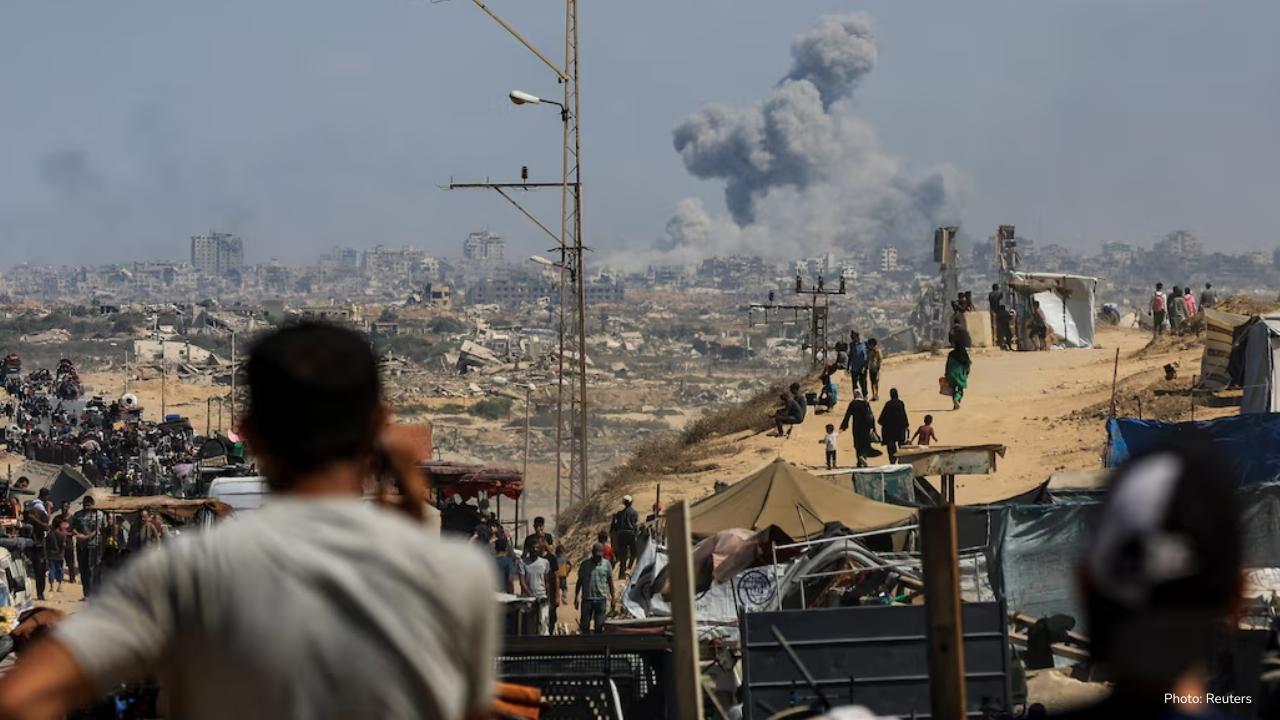
Post by : Monika
Israeli tanks and soldiers have moved deeper into Gaza City, intensifying the ongoing conflict between Israel and Hamas. The fighting has caused significant destruction, killing civilians, and forcing thousands to flee their homes.
Families are moving from northern areas of Gaza to the south in search of safety. Many neighborhoods have been damaged, hospitals are overcrowded, and food supplies are running low, raising fears of famine.
The current violence is part of a long-lasting conflict between Israel and Hamas, which governs Gaza. The latest escalation began in October 2023, when Hamas launched attacks on Israel, killing over 1,200 people and taking more than 250 hostages.
Some hostages are still alive, but around 48 remain in captivity. Israel has responded with a large-scale military campaign in Gaza, aiming to weaken Hamas and rescue hostages. Since the conflict began, over 65,000 Palestinians have died, including many women and children.
The Israeli military says its attacks target Hamas fighters and their infrastructure, but the airstrikes and tank movements have also caused civilian casualties. The United Nations and other international organizations have repeatedly warned that the attacks on densely populated areas are worsening the humanitarian crisis. Hospitals, already stretched beyond capacity, are struggling to care for the injured.
Two hospitals in Gaza City have had to stop operations because of airstrike damage. Aid agencies have also reported shortages of water, food, and medical supplies, leaving many people in dire conditions.
Thousands of families have been forced to leave their homes in northern Gaza. They are heading south toward areas believed to be safer, but even these zones are not fully protected from attacks. The movement of people has created crowded shelters, where families live in small spaces with limited access to basic needs. Children and elderly people are particularly vulnerable, with many falling sick due to lack of clean water and proper nutrition.
In the midst of this violence, U.S. President Donald Trump has stepped forward with a new plan for peace in the region. At the United Nations General Assembly, he presented a 21-point plan aimed at ending the conflict and addressing the humanitarian crisis in Gaza.
The plan calls for a ceasefire, free access for humanitarian aid, and the creation of a framework for long-term negotiations between Israel and Palestinian authorities.
President Trump met with leaders from Saudi Arabia, Qatar, and Egypt to discuss the peace plan. He expressed hope that the plan would lead to a breakthrough in the coming days and bring relief to civilians affected by the war. Trump emphasized that any peace agreement must ensure Israel’s security while also addressing the needs of Palestinians who have suffered during the conflict.
The 21-point plan is detailed and includes measures to rebuild infrastructure in Gaza, provide food and medical aid, and restore basic services such as electricity and water. It also suggests the formation of an international monitoring force to ensure that both sides follow the ceasefire agreement. The United States is pushing for countries in the region and around the world to support the plan, hoping it can prevent further escalation of violence.
However, the plan faces challenges. Some international allies, including France, Britain, and Canada, have recognized Palestinian statehood. This move is at odds with Israel’s position and complicates diplomatic efforts led by the U.S. Israel and its allies argue that Hamas is responsible for the violence, and they are cautious about any plan that does not hold Hamas accountable. Hamas, on the other hand, warns that the military advance in Gaza City threatens the lives of hostages and civilians.
The conflict has already caused widespread destruction. Residential areas in Gaza City, especially in neighborhoods like Sheikh Radwan, have been heavily bombed. Buildings have collapsed, roads are blocked, and basic infrastructure such as water and electricity lines have been destroyed.
Schools, which also serve as shelters for displaced people, have been damaged or forced to close. The United Nations reports that tens of thousands of people now live in temporary shelters, often without adequate food, water, or sanitation.
Hospitals are overwhelmed with patients. Many injured civilians, including children, cannot receive proper care due to damaged facilities and lack of medical staff. Doctors report that shortages of medicines and surgical equipment make it nearly impossible to treat everyone.
Ambulances sometimes cannot reach people trapped under rubble because roads are destroyed. International aid groups are calling for safe corridors to evacuate the wounded and deliver essential supplies, but attacks continue, making relief efforts dangerous.
Food shortages are another serious problem. Many families have run out of basic supplies. Markets and shops have been destroyed or remain closed due to the fighting. Aid agencies are working to bring food to Gaza, but trucks cannot safely reach all areas. Clean drinking water is also limited, which increases the risk of disease. Children are the most affected, with malnutrition becoming a growing concern.
The international community is closely watching the situation. United Nations officials, European Union representatives, and Arab countries are urging both Israel and Hamas to agree to a ceasefire. Several countries are discussing ways to stabilize Gaza after the fighting stops. Plans include rebuilding homes, restoring electricity, and providing medical care. Some countries have also suggested creating an international peacekeeping force to help maintain order and ensure aid reaches those in need.
Despite these efforts, fighting continues. Israeli officials say their goal is to destroy Hamas infrastructure and rescue hostages. Hamas continues to resist, firing rockets into Israel and warning that attacks in Gaza City will put hostages in danger. Civilians are caught in the middle of this conflict, facing the constant threat of airstrikes and artillery fire.
The United States has played a key role in proposing a solution. President Trump’s 21-point plan aims to balance Israel’s security concerns with humanitarian aid for Palestinians.
It also tries to create a long-term framework for peace, suggesting negotiations for political solutions and economic recovery in Gaza. Trump hopes that cooperation with Arab states, including Saudi Arabia, Qatar, and Egypt, will strengthen the plan and convince both sides to agree to a ceasefire.
However, achieving peace will not be easy. The deep mistrust between Israel and Hamas, combined with disagreements among international actors, makes negotiations complicated.
Some countries criticize the plan for not addressing Palestinian statehood, while others argue it does not guarantee Israel’s security. Experts warn that without cooperation from both sides and strong international support, the humanitarian crisis may worsen, and violence could continue.
Meanwhile, ordinary people in Gaza continue to suffer. Families are living in crowded shelters, struggling to find food and water. Children cannot attend school, and hospitals cannot provide adequate medical care. The lack of electricity and running water has made daily life extremely difficult. Many parents fear for their children’s safety and worry about what the future holds.
In Israel, citizens are also affected by the conflict. Hamas rockets have caused casualties and property damage. Many Israeli families live under the threat of attacks, and the government is focusing on protecting its population while continuing military operations in Gaza.
International organizations are emphasizing the need for immediate humanitarian aid. They call for safe corridors to evacuate injured civilians and deliver food, water, and medical supplies. The goal is to prevent a full-scale humanitarian disaster, as thousands of families face starvation, illness, and displacement.
The 21-point peace plan is being discussed at the United Nations, with hopes that it can bring relief to both Israelis and Palestinians. Trump’s initiative includes measures to rebuild Gaza, ensure free access for humanitarian aid, and create mechanisms for long-term peace. Countries supporting the plan emphasize that cooperation and compromise will be essential to stop the violence.
The coming days are critical. The situation in Gaza remains dangerous, with ongoing military operations, civilian casualties, and a worsening humanitarian crisis. The international community is watching closely to see if a ceasefire can be agreed upon and if humanitarian aid can reach those in need.
In conclusion, the conflict between Israel and Hamas has caused massive destruction, thousands of deaths, and widespread displacement. President Trump’s 21-point peace plan offers a potential path to peace,
but success depends on cooperation from both sides and international support. The lives of ordinary civilians, especially children and families, remain at risk as fighting continues. Immediate action is needed to prevent further suffering and to work toward a long-term solution that ensures safety, security, and humanitarian relief for all affected.
Israel Gaza conflict


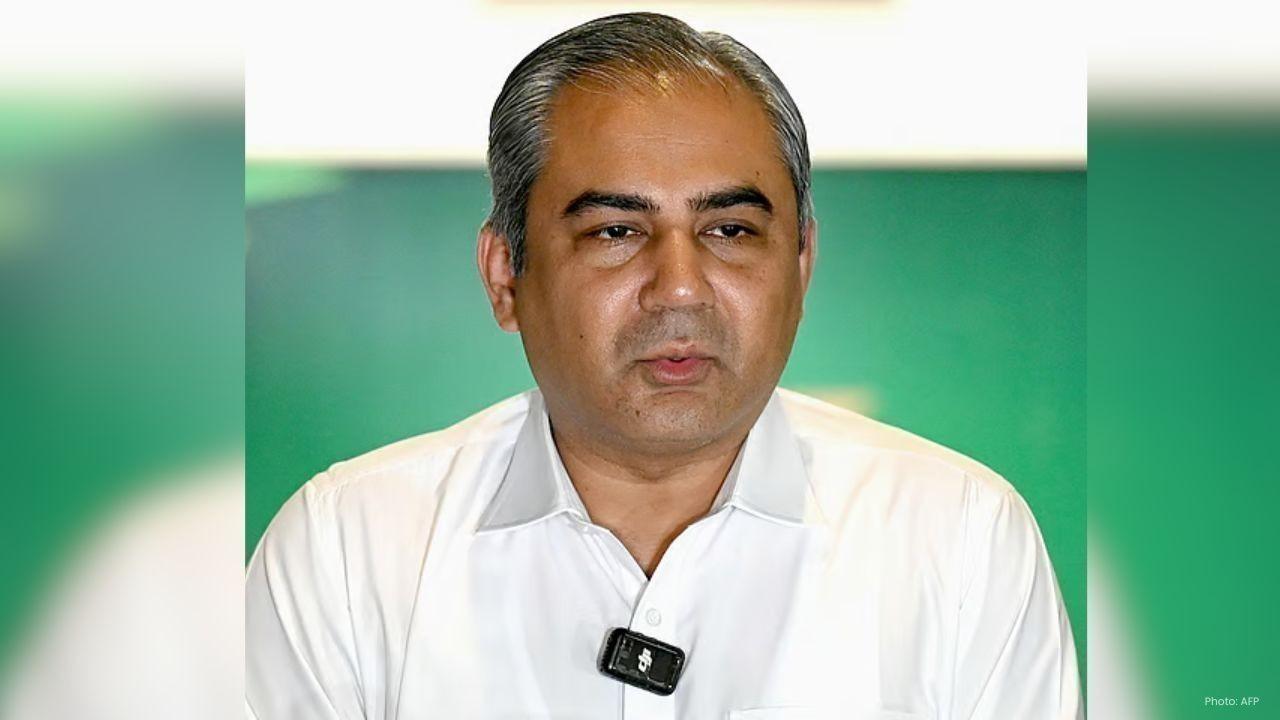
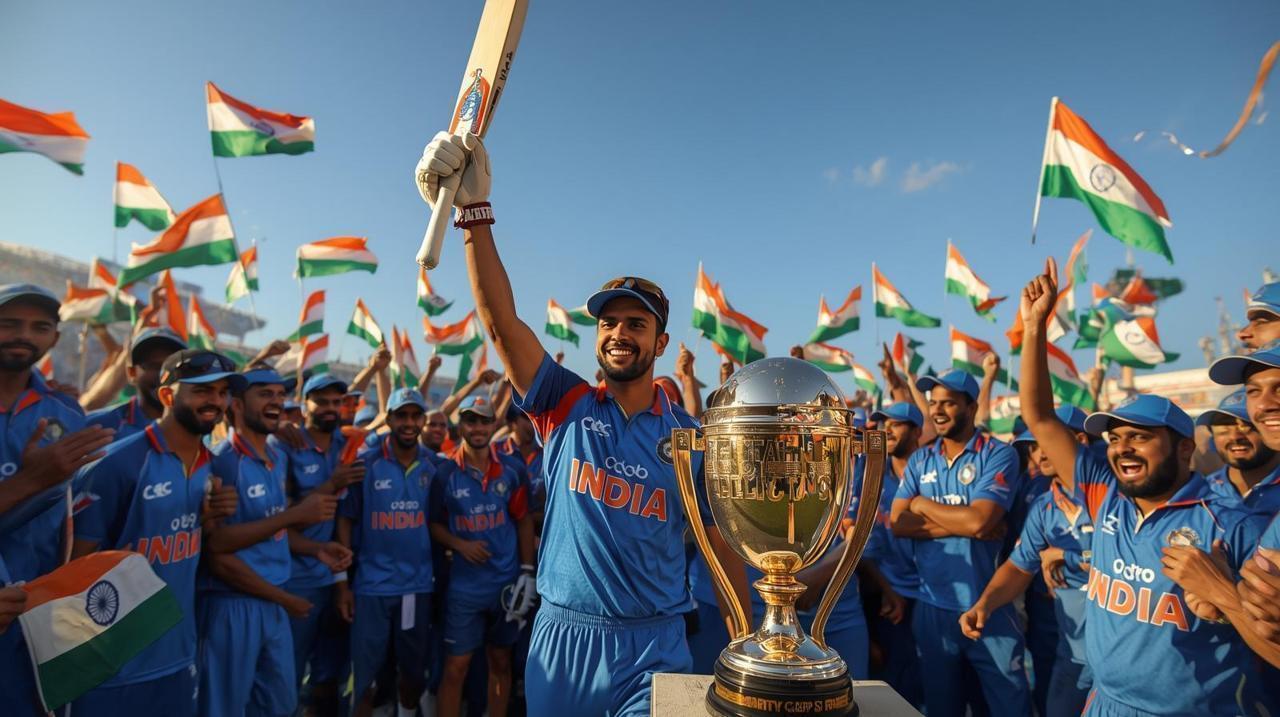
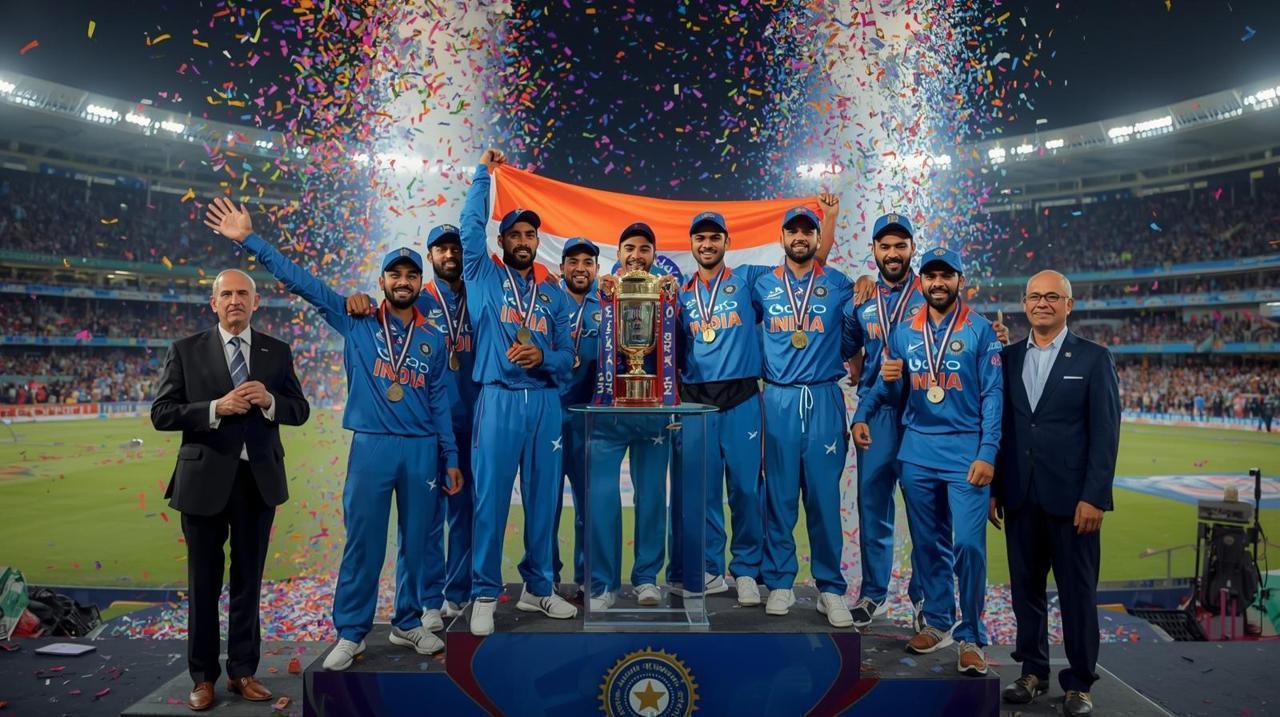

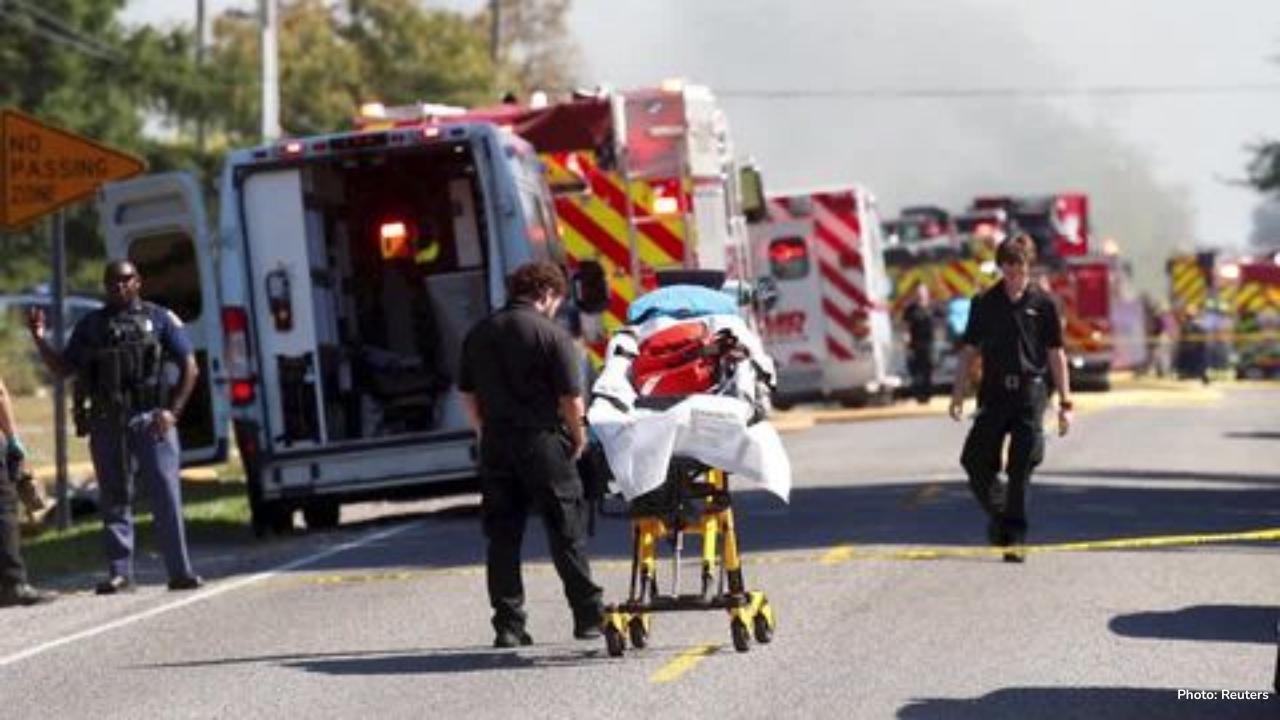
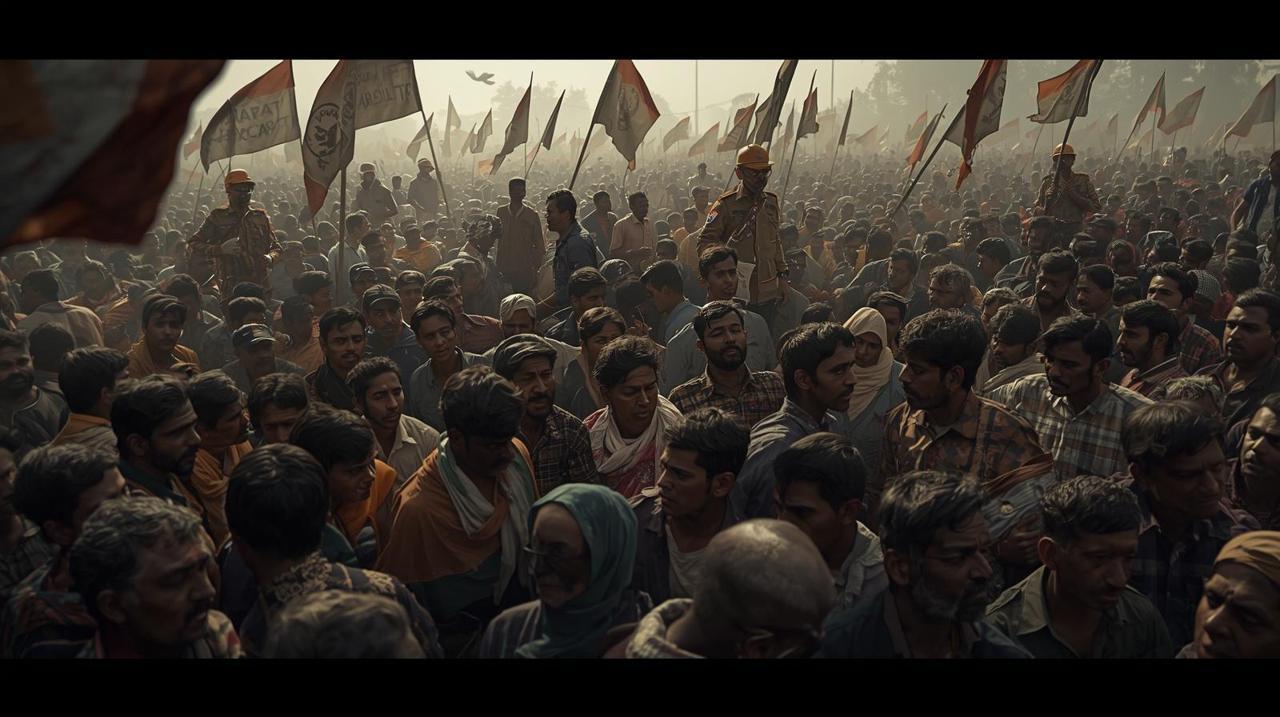


Sinner & Swiatek Shine at China Open: Semifinal Spots Secured
Jannik Sinner and Iga Swiatek advance to the semifinals at the China Open. Read about their victori

Michigan church attack kills 4, injures 8 in shocking violence
A gunman drove into a Michigan church, fired shots, set fire, killing 4 and injuring 8 before police

Moldova’s Pro-EU Party Secures Majority in Key Vote
Moldova’s pro-European PAS wins a strong majority in the parliamentary election, weakening pro-Russi

Gabriel’s late header gives Arsenal 2-1 win at Newcastle
Arsenal snatch dramatic 2-1 win at Newcastle as Gabriel heads the winner in stoppage time; Merino eq
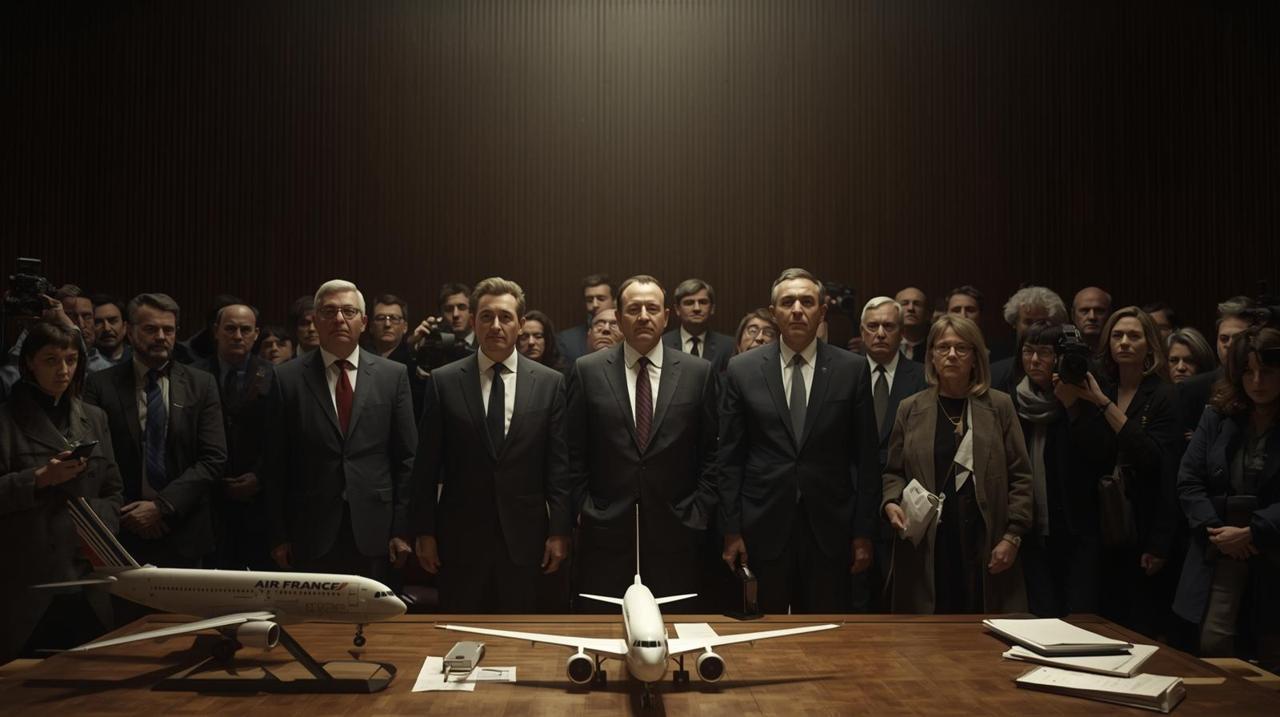
Air France Flight 447 Trial Opens 16 Years After Tragic Crash
Sixteen years after the Air France Flight 447 crash, a trial opens against Air France and Airbus. Le

Europe close to Ryder Cup win after strong weekend play
Team Europe is on the verge of winning the Ryder Cup, showing great form in Italy and needing only a